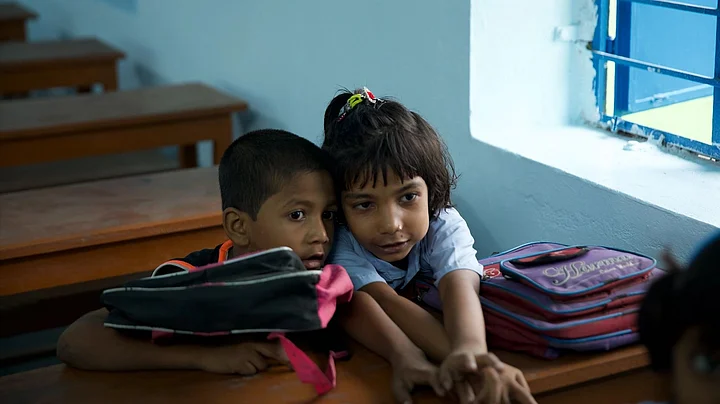Days after the National Council of Educational Research and Training (NCERT), among other changes, removed chapters on climate change from its school syllabi, Union education minister Dharmendra Pradhan announced on 9 July that the dropped chapters will be restored.
Pradhan had said, “We have to include such elements in our universities and education system so that we can deal with the challenges of climate change and achieve sustainable development goals,” as reported by Deccan Herald.
Reacting to the change, a student had said, "The NCERT's decision is shocking."
Among these were chapters on 'Greenhouse Effect' in the Class 11 geography syllabus, 'Weather, Climate, and Water' in the Class 7 syllabus, and the 'Indian Monsoon' in the Class 9 syllabus.
"This is like a step backward," said Dr Roxy Mathew Koll, a renowned climate scientist, professor, and lead author of IPCC reports.
"It's a bad idea because whatever stream they go, whether it's engineering or medicine or something else, they will have to integrate climate and weather into their education. If you're engineering roads or buildings, they have to be climate resilient for the future," he noted.
Teachers' Body Dismayed by the Recent Changes
The NCERT decided to remove these chapters in an attempt to reduce the workload of students by culling material that overlaps with similar material or is "irrelevant in the present context."
A teachers' body called 'Teachers Against the Climate Crisis (TACC)' has vocally opposed this decision.
The TACC put out a statement saying that it is extremely important that senior school students all over India are taught the essence of such updated information in an accessible, easy-to-understand manner.
"It is bizarre that the NCERT has decided to drop related topics from the syllabi in schools because that is where young people are first exposed to and develop an understanding of these issues," said Nagraj Adve the founder member of TACC.
"Young people are also exploring ways to respond; that agency, seeking to intervene is very important, for which understanding the changing realities is a crucial first step," he added.
"As a parent, I have seen that there is a lot of volume in the syllabus. I have two kids, one in Class 8 and one in Class 5," Dr Koll said. "So, I can see why they would want to remove 20 to 30 percent of the material. But why climate change? Should we do that? No, we just can't."
Climate Education Is Must for Climate Action
Students, teachers, professors, and environmentalists that we spoke to believe that the actions and interventions of young people are very important to combat climate change, and most of them have started because of the awareness they attained through school education.
"Climate change is important for us to learn about because the future is ours and we need to know how to deal with the climate crisis and its impacts," said Aarav Seth, 13, who is a Class 9 student.
"Students need to understand the complexity of the climate crisis if they are to respond and engage intelligently with it. In recent years, this engagement has typically begun in the classroom."TACC statement
There are two big examples of climate action at school that we can see in India. One is 'Fridays for Future' – a global climate action movement, run by schoolchildren, that Indian students became a part of.
Another is a campaign against bursting firecrackers. Especially in metropolitan cities, a substantial number of children insisted that their families don't burst firecrackers on Diwali.
"This decision just shows that NCERT is turning a blind eye to such an important issue," said Aarav.
Climate Change Is This Generation's Reality
This generation is seeing the worst and very conspicuous impacts of climate change around them – all types of pollution, heatwaves, floods, extreme weather events, and much more.
"We are already seeing the impacts of climate change. How will we adapt and prepare for it if we never even study about it," asked Aarav. "The world is making a transition towards renewables. As future decision-makers, how can we not be taught what that means?"
Not only are children today exposed to the direct impact of climate change, but they are also vulnerable to eco-anxiety.
"There is a growing concern among young people regarding climate issues, bordering, at times, on anxiety. They are grappling with various facets of the climate crisis in India and around the world, which is a growing reality that our generation did not have to cope with," said Adve.
"The recent IPCC report says that children are the most vulnerable due to climate change, particularly in countries like India. They might be going through extreme events, like heat waves or floods, but they may not know what they are experiencing or how to cope with that," said Dr Koll.
"It's not just about the future, it's also important for students to understand the climate conditions they are facing right now," he insisted.
(At The Quint, we question everything. Play an active role in shaping our journalism by becoming a member today.)
